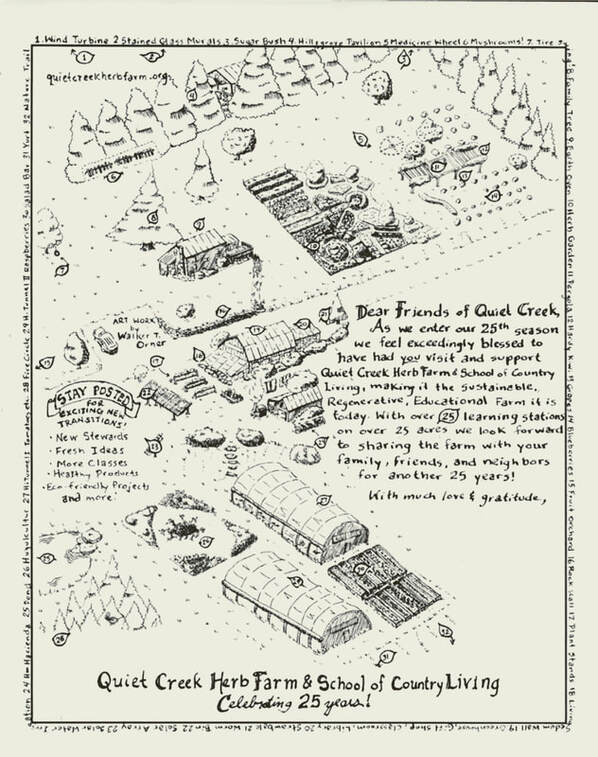Mark describes our feathery friends as localvores eating year round. Caterpillars and grasshoppers are highly prized in the summer. Although in the winter, bluebirds love the stag horn sumac, rosehips, and bay berries. In addition to fruity dining, one may provide barn flies and carpenter ants brushed out the windows or knocked out of wood burner logs as done for Quiet Creek’s blue winter companions.
Instructing on how to improve on bluebird habitat, Mark shared construction and placement ideas. The typical bluebird house holes are smaller than the head and shoulders. If a rectangular entrance is built into the house design, the hardworking parents don’t need to expend extra energy crawling in and out of their residence. A shallow floor, as suggested by Mark, keeps the mother bird from having to make such a deep nest.
Mounting boxes on metal poles with a baffle is very important. Trees, fence posts, and telephone poles encourage predators like raccoons and black snakes for unwanted dinner engagements.
Wooded areas are likely to find house wrens twigging up the boxes, so open fields with nearby posts are ideal for perching when searching for six-legged critters. Mark uses an eighty inch long and three quarter inch wide galvanized conduit for his posts with a capped two inch section of four inch plastic drain pipe that sets eight inches below the bird box. This wobbly obstacle will prevent squirrels, chipmunks, raccoons, cats and other animals from snatching the clutch of eggs or young.
When renting to bluebirds, we as landlords must seriously watch for invading species. Sparrows and starlings tend to take over a bluebird nest by murdering the parents. Traps can be installed to catch uninvited invaders.
The bottom of the box should be examined for the blow fly maggot that crawls upon the clutch sucking blood at night.
The health and well-being of the nest will depend upon your close monitoring. Bluebird parents appreciate your help and never mind daily visits since they are unable to detect your scent.
Mark offers expert consultation and supplies for blue birds at '[email protected]'. He is a selfless, hard-working individual and sets high expectations in helping to preserve Pennsylvania’s favored friend.
 RSS Feed
RSS Feed
